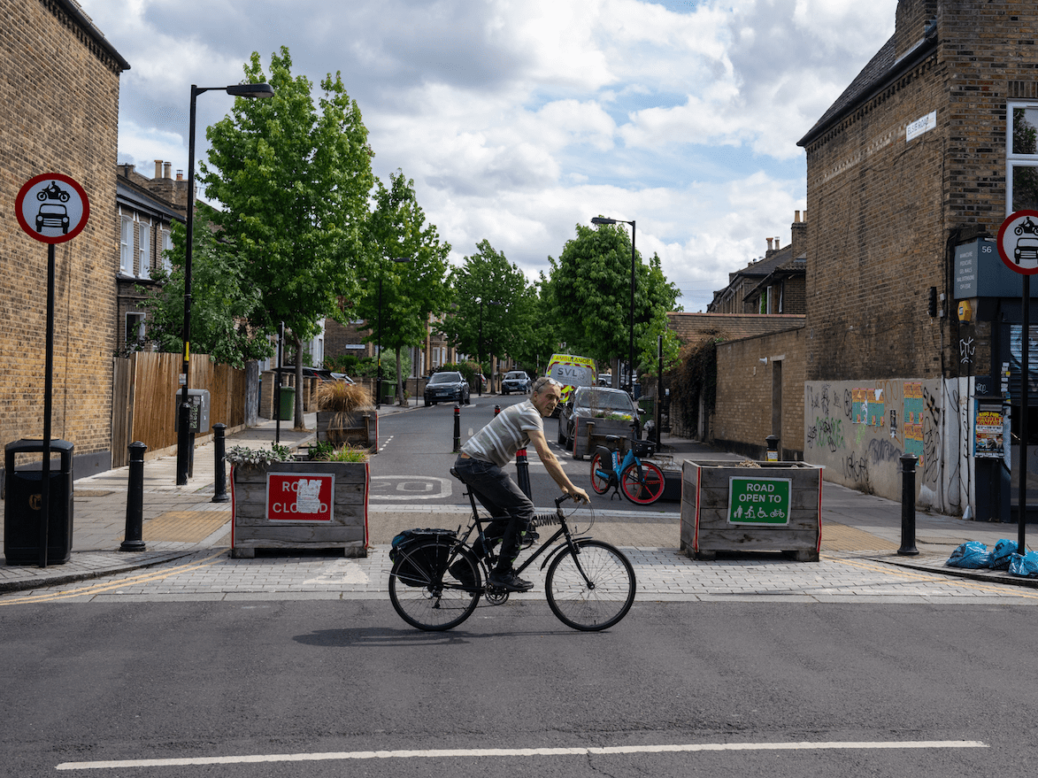
In 1966 The Times reported on a new traffic management scheme in Westminster aimed at halting the rise of motorists zipping through the residential back roads of Pimlico. Similarly, forty years ago, the residents of Bushwood in Leytonstone successfully campaigned to reduce what they called “rat running” through their residential area, securing what transport experts call “modal filters” that transformed their neighbourhood.
These kind of schemes have a long pedigree, but in 2014 Waltham Forest, where I have been a councillor for over two decades, was among the first London boroughs to introduce what are now referred to as low-traffic neighbourhoods (LTNs). The projects were originally billed as the Mini-Hollands programme, part of an attempt by Boris Johnson, the mayor of London at the time, to encourage more active travel. Then, as now, misinformation and fear led to angry protests from some residents. The local authority listened, amended the project, and, after careful consideration, pushed ahead. As a result, far from being a vote loser, there were huge swings in support of candidates that dared to go against the status quo by supporting LTNs. Today nearly half of Waltham Forest’s residential roads sit within an LTN, and more residents are actively asking the council to have their areas converted.
[See also: Rishi Sunak can’t save the British motorist]
Despite an abundance of evidence showing LTNs’ popularity with residents and the wider public, the government is loudly proclaiming its opposition to low-traffic schemes in the hope of winning some electoral benefit. An anti-low emission zones and anti-LTN cottage industry has swiftly emerged on talk shows and on social media. The principal effects of the measures councils are taking to encourage people out of their cars and to reduce unnecessary car journeys are forgotten – they are proven to make ourselves, our neighbourhoods and our planet healthier.
Perhaps the most striking figure that has emerged from long-term studies is that the number of households exposed to dangerous levels of nitrogen dioxide is reduced dramatically. In Waltham Forest it fell from 58,000 in 2007 to 6,300 in 2017. People born in the borough can now expect to enjoy an extra six weeks of life expectancy, according to an independent study by King’s College London published in 2018. Data on the number of road traffic injuries within LTNs across the capital showed a marked decrease. Last year Waltham Forest had one of London’s largest declines in car ownership. We have seen the number of journeys by bike double in the three years up to 2023.
To hear opponents of LTNs or the Ultra Low Emission Zone (Ulez) talk, you would think the only people behind the wheels of private vehicles are delivery drivers, people with disabilities, taxi drivers and plumbers carrying heavy equipment. The stark reality is that too many people who could easily choose other options simply refuse to consider other forms of transport. When they are done well, these schemes are pro-people, not anti-car. They’ve been around for longer than many of the most pro-motorist commentators let on, and in Waltham Forest they’ve been proven to be a roaring success.
[See also: Charity chief: “We know it’s controversial but clean air zones work”]




